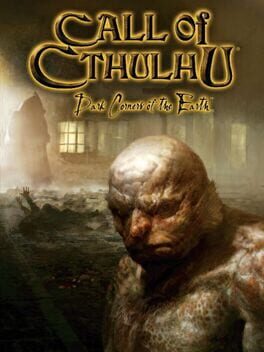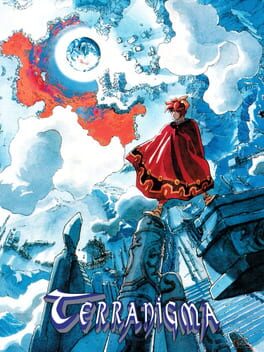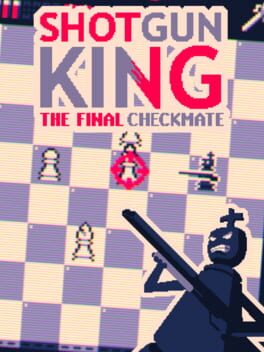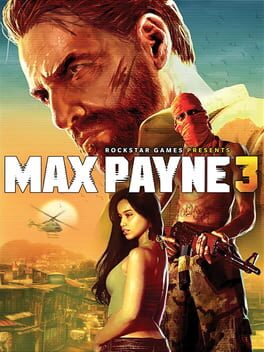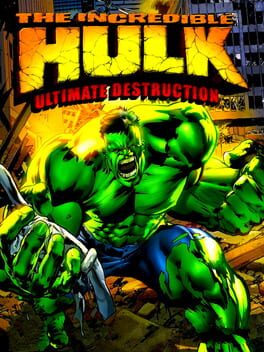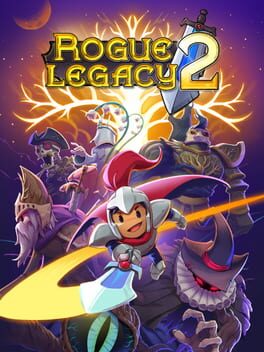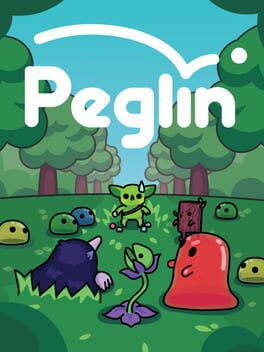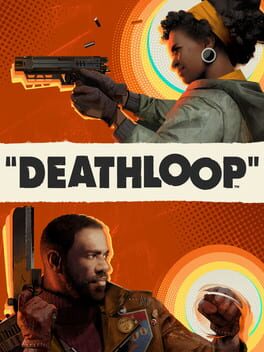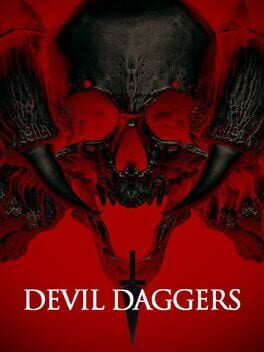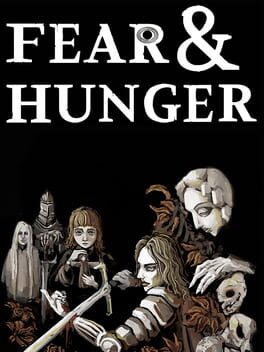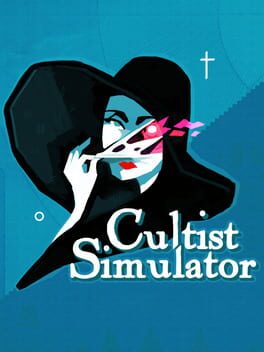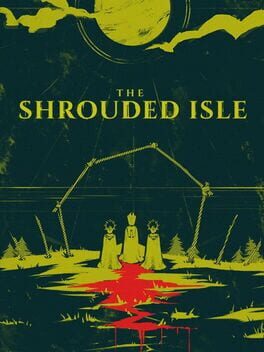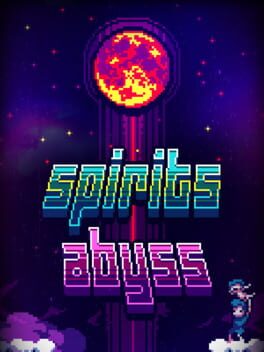BeauTartep
1995
Square Enix is a dud developer for me: Chrono Trigger is my favourite game made in house by them, and frankly, it barely scrapes past the margin of mediocre to worthwhile in my estimation. Final Fantasy VII is the only FF game I've played all the way through thus far, and the experience was dreadfully dull, carried only, weakly, by the modicum of flavour that exists in the game contrasting typical sword and sorcery with it's cyberpunk/arcane mystic-machinism.
Hearing that they'd developed a game, for SNES no less, that ditches the terrible turn-based combat that renders many of their games into sagas of woodenly written corn mash in favour of real-time action hack and slash combat genuinely excited me. I thought that if the gameplay was more minute to minute engaging, in ways that even just slashing your sword while running in many games can feel good, would invest me more into the narrative and world via a bypass of the inherent lack of inhabitable gestalt that turn based action creates. Unfortunately, while the combat is significantly better, the narrative is hackneyed and sparse, carrying the combat only so far as connecting back of the box quotes with opening text scrawl. If Chrono Trigger had this combat system, switching between characters like Trine or The Forgotten in Isaac, it would be legitimately worthy of being called a masterpiece. As it stands, Terranigma is the stand out Square game that put play first, a task which was too monumental for the team, proving that their games must always be limpid in half of the experience.
Hearing that they'd developed a game, for SNES no less, that ditches the terrible turn-based combat that renders many of their games into sagas of woodenly written corn mash in favour of real-time action hack and slash combat genuinely excited me. I thought that if the gameplay was more minute to minute engaging, in ways that even just slashing your sword while running in many games can feel good, would invest me more into the narrative and world via a bypass of the inherent lack of inhabitable gestalt that turn based action creates. Unfortunately, while the combat is significantly better, the narrative is hackneyed and sparse, carrying the combat only so far as connecting back of the box quotes with opening text scrawl. If Chrono Trigger had this combat system, switching between characters like Trine or The Forgotten in Isaac, it would be legitimately worthy of being called a masterpiece. As it stands, Terranigma is the stand out Square game that put play first, a task which was too monumental for the team, proving that their games must always be limpid in half of the experience.
A worthwhile permutation on deck building relying on stratified layering of chess mechanics with increasing difficulty puzzle levels to manage progression. Once you beat the game, the real limitations of how much content there is in the game becomes extremely apparent but until that point, it's an extremely engaging little chess mixup. If they added even 10 or more new cards and mix ups, or changed terrain options or vassal armies, really any added content, this could easily become a roguelike to class amongst the best.
2012
I can’t speak to what genre pretensions the Max Payne series held before the IP’s third entry, having never played those first games for myself; Remedy have not yet proven themselves to be a consistent developer for me, having made at least a few games which ranged from downright rotten, such as Alan Wake, to mediocre fare worthy only of listing in internal documents for their legal department, such as Quantum Break or the Crossfire campaign. Despite those dismal dregs though, one excellent game helmed by their studio, Control, while not exciting me as of yet to dive through hours of their backlog, at least maintains some ear perking for the studio. So I left the Max Payne series alone - I enjoy noir pastiche just as much as the next person, but I don’t need to wrestle my way through the muddy channel games waded through on the way from Tomb Raider to Gears of War when I have Stray Bullets, The New York Trilogy, and Brick at my disposal. That said, after hearing for years the critical discussion on how Max Payne 3 transformed the series’ neo-noir negging into a wash Michael Mannian existential burden, I thought that the experience would at least breeze by quicker than any involving emulating the previous two entries. After playing the game, and the experience proves for me I still have very little if any particular love for Rockstar, I think I had the entire thing backwards. Max as a character is, I think, worth anchoring a world around, certainly in a way that Alan Wake never manages to deserve, and the gameplay in Max Payne 3 has moderately solid bones which substantiate more the desperation and devil-may-care attitude to his mortality than other third person shooters, although those duck and cover mechanics are slathered in technical and design encounter muscles overgorged on the steroids that Rockstar insists in putting into every game they’ve ever had the misfortune to direct. The writing is lightly hammy, intensely melodramatic, yet conceived of with a grandness that doesn’t overbear on or overreach its scope, walking that fine line between truly sincere noir stories such as In a Lonely Place and totally absurd tales such as Dark City. Max’s narration in particular anchors the world, with Herculean strength too, given the mawkish brutality of Rockstar’s Brazil and Hoboken, allowing the player to, in equal measure at least to Payne, take nothing too seriously without losing the human stakes involved. The weirdest and least eloquent way I can describe it is if someone took Hot Fuzz, which upturned the conventions of Michael Bay films with bold miniaturization, and made a full right turn on that film’s right turn, back into sincerity without losing the heart it gained by filming actual humans with actual hearts in place of Bay’s nihilistic super killers.
The play, as I can’t compare it to the previous Payne games, is fine to paltry. The shooting gets stale very quickly and any exploration is so pointlessly barren that to move in the world is to render all the detail of the story into boxy, Source engine corridors. Rockstar’s crasser elements come out in force whenever they are not remaining true to the strength of the game, lovingly framing the destruction of the human form with borders of bullets and bombs. Still, it was never actively frustrating or painful, and when soundtracked by the sultry sweet tingle of Payne’s narration, it made the 10 hours go by like butter and brown sugar.
The play, as I can’t compare it to the previous Payne games, is fine to paltry. The shooting gets stale very quickly and any exploration is so pointlessly barren that to move in the world is to render all the detail of the story into boxy, Source engine corridors. Rockstar’s crasser elements come out in force whenever they are not remaining true to the strength of the game, lovingly framing the destruction of the human form with borders of bullets and bombs. Still, it was never actively frustrating or painful, and when soundtracked by the sultry sweet tingle of Payne’s narration, it made the 10 hours go by like butter and brown sugar.
Not really for me! I have never played a character action game which truly clicked with me, and the aesthetics of this era of Marvel comics just, I don't know, seem like they have the Big curse from Big - children in adult bodies. I didn't do any of the sidequests and felt vastly more powerful than anything thrown at me, which is great for a Hulk simulator, but it didn't captivate me enough to appreciate any systemic complexity within. Probably great for people in the game's pocket, but only so so for someone like myself who generally doesn't even terribly like Platinum games.
2020
First and foremost, it has to be said that the improvements this makes on the design of the first Rogue Legacy are not merely additive but exponential. Rogue Legacy, god bless it, a decade old now, holds in its aging, withered helm the perfect ur-example of how the indie sphere developed across the 2010s - a college that, after being let loose by digital distribution, progressed from a ragtag group of games that hit notoriety, flourishing most when either stripping down the mechanical breadth of concurrent AAA games to a more cohesively succinct experience or when revising and iterating on too hastily discarded design ethea of yester-generations coupled modern insight, to a glut of games that had not the editorial spirit to cut on bad humour/interface/reference marring their experiences nor the mechanical know how to convey any consistent emotion across their verbsets, art assets, or writing; Rogue Legacy, which excitingly took the twitch sword and board combat of Castlevania with a mixed in progression system of MMO character building, became a wooly little beast of a game, a game that felt dim and chalky to play, that plodded treacherously through an ill mannered narrative, and which catered to the lowest border of aesthetic dullardry. It was the perfect game to never revisit.
Rogue Legacy 2, much more the germinal remake/refurbishment than prototypical sequel, improves on every conceivable platform that, in hindsight more than with historical circumspection, Rogue Legacy failed on with incredible ability. The movement feels legitimately intuitive, whereas the clunky, phlegmatic platforming of RL1 was ATARI level basic, and is built about plastic boundaries for which the blueprint of dashing, jumping, and talent-ing around the world is joy in motion. The combat, while still quite basic, has shown to be a grand wheel around which many spokes may turn, with each class navigating combat with differentiated schema that make the repetition of the roguelike base much more presently titillating than is typical when transitioning from a senior run to a fresh go at the castle; RL1 much more relied on the back-end change ups between classes, tweaking numbers almost in totality vs augmenting play, leading to a very weak iteration loop - repetitious as opposed to transformative. The enemies are carried over in large scale, but are included in more exciting encounters that play off the dispatch strategies their abilities intermingle amongst, whereas their counterpoints in RL1 almost exclusively occupied the same corridors and presented the same threats in any scenario throughout the game. Of course, that upgrade in quality also comes alongside the vastly improved world design, transforming every environment into not only a thematically distinct stage but stages considering different extensions of the player verbset to limits that were not even hinted at much less explored in RL1. Aesthetically, the improvement is subjective; for my part, I think the time that the devs had to develop and rework the, far too blurry, in my opinion, line between sword and sorcery and Looney Tunes is, at the very least, consistently readable and coherent, and at time even pleasing, when compared to the pixelated and mushy mess of RL1.
On the whole, nothing can be said about RL2 without first glancing at its heights from the comparatively low summit of its predecessor. Having then made that comparison and said my peace about it, there can at least be some enumeration on what doesn’t succeed in this game, and there is still quite a great deal. The narrative framing, and writing that supports that framing, is terribly sophomoric: it balances competing tones of dower agnominity with childish slapstick humour at incongruous, even simultaneous, moments. Oftentimes within a journal entry expounding the entirety of the avatar’s present purpose within the game world, it will have passages explicating the ravages of famine and pestilence on the population, only to follow it up with how an estuary’s hoarding of the nation’s pizza supplies are giving him gas - which in itself is pitiable and weakly conceived, but it every bit of prose is failed as well by its stylistic composition, using the same short, paltry structure and voice. The art, while more holistically cohesive than in the previous games, similarly fails to impress. The only aesthetic marker I can attach to it would be something akin to ‘DnD sticker book’: nothing is impressively rendered or original, and the only small moments of genuine impressiveness come at the improved scale of the game in comparison to RL1. The gameplay, while certainly not bad, does not feel genuinely iterable in the roguelike progression pathing like we’ve seen develop in games like Dead Cells or Gungeon, so while the classes make replayability more titillating, the overall structure of its replayability feels flawed and stultified. If there was less of a scope in the game’s economy, and the meta-progression were instead focused more on the utilization and mastery of the cast of classes available to the player, in a way similar to Prey: Mooncrash, wherein the various abilities of your avatars are implemented so as to further progression for each other, the iterability of the game’s structure would feel more exciting to venture in with continued newness and unknowability. It’s also a bit too long for me, but some people latch onto any roguelike and will milk it utterly dusty, so while this made my time with the game somewhat tedious, I understand the impetus behind prolonging the game’s normal campaign.
Rogue Legacy 2, much more the germinal remake/refurbishment than prototypical sequel, improves on every conceivable platform that, in hindsight more than with historical circumspection, Rogue Legacy failed on with incredible ability. The movement feels legitimately intuitive, whereas the clunky, phlegmatic platforming of RL1 was ATARI level basic, and is built about plastic boundaries for which the blueprint of dashing, jumping, and talent-ing around the world is joy in motion. The combat, while still quite basic, has shown to be a grand wheel around which many spokes may turn, with each class navigating combat with differentiated schema that make the repetition of the roguelike base much more presently titillating than is typical when transitioning from a senior run to a fresh go at the castle; RL1 much more relied on the back-end change ups between classes, tweaking numbers almost in totality vs augmenting play, leading to a very weak iteration loop - repetitious as opposed to transformative. The enemies are carried over in large scale, but are included in more exciting encounters that play off the dispatch strategies their abilities intermingle amongst, whereas their counterpoints in RL1 almost exclusively occupied the same corridors and presented the same threats in any scenario throughout the game. Of course, that upgrade in quality also comes alongside the vastly improved world design, transforming every environment into not only a thematically distinct stage but stages considering different extensions of the player verbset to limits that were not even hinted at much less explored in RL1. Aesthetically, the improvement is subjective; for my part, I think the time that the devs had to develop and rework the, far too blurry, in my opinion, line between sword and sorcery and Looney Tunes is, at the very least, consistently readable and coherent, and at time even pleasing, when compared to the pixelated and mushy mess of RL1.
On the whole, nothing can be said about RL2 without first glancing at its heights from the comparatively low summit of its predecessor. Having then made that comparison and said my peace about it, there can at least be some enumeration on what doesn’t succeed in this game, and there is still quite a great deal. The narrative framing, and writing that supports that framing, is terribly sophomoric: it balances competing tones of dower agnominity with childish slapstick humour at incongruous, even simultaneous, moments. Oftentimes within a journal entry expounding the entirety of the avatar’s present purpose within the game world, it will have passages explicating the ravages of famine and pestilence on the population, only to follow it up with how an estuary’s hoarding of the nation’s pizza supplies are giving him gas - which in itself is pitiable and weakly conceived, but it every bit of prose is failed as well by its stylistic composition, using the same short, paltry structure and voice. The art, while more holistically cohesive than in the previous games, similarly fails to impress. The only aesthetic marker I can attach to it would be something akin to ‘DnD sticker book’: nothing is impressively rendered or original, and the only small moments of genuine impressiveness come at the improved scale of the game in comparison to RL1. The gameplay, while certainly not bad, does not feel genuinely iterable in the roguelike progression pathing like we’ve seen develop in games like Dead Cells or Gungeon, so while the classes make replayability more titillating, the overall structure of its replayability feels flawed and stultified. If there was less of a scope in the game’s economy, and the meta-progression were instead focused more on the utilization and mastery of the cast of classes available to the player, in a way similar to Prey: Mooncrash, wherein the various abilities of your avatars are implemented so as to further progression for each other, the iterability of the game’s structure would feel more exciting to venture in with continued newness and unknowability. It’s also a bit too long for me, but some people latch onto any roguelike and will milk it utterly dusty, so while this made my time with the game somewhat tedious, I understand the impetus behind prolonging the game’s normal campaign.
2015
(Just an fyi, I read the Divine Comedy last week and it’s living in my brain atm)
God, what is there left to say about The Beginner’s Guide? The game’s critical buzz has never really abated; gristly bits of comparative critics funnel through concentric grinders operating like a fountain in orbit around Wreden and “Coda” , the last cavernous mouth open at the center of things for the player to hop in and be bitten through - and strangely enough, like another undead game as manifesto, Getting Over It, critics keep themselves in the crucible and hop like fishes into that dulce maw. Of course, it’s not a difficult ask when the writing is as sharp herein as it was in The Stanley Parable, proving Wreden is not merely an apt and capable comedic dev but also that he genuinely knows how systems, when contextualized, produce pathos - systems that, when circling ever downwards through architectures and environments inescapable and, if we are less brazen at the end of things come breakdown, irreducible, cannot help but ensnare new writers every year. Unfortunately, I don’t have much more to say on the game than any astute critic has brought to The Beginner’s Guide in the last seven years (so I won’t try to ape Errant Signal, Innuendo Studios, What’s So Great About That, or Watch out for Fireballs) - what I can say is this: I think that the quality of gratuitous self displacement in game circles is proportionately massive in comparison to the toxic empathy seen in other many other mediums’ audiences (I mean, I love Mary Wigman’s dancing as much as anybody, but you never see people get so utterly invested in her or her compatriot’s subliminal ‘meanings’ as we do with fixations in games and other, to a lesser proportional extent, pop media), and this is something that requires more frequent investigation even in the wake of Davey Wreden’s time bomb. We are beset by locutions memeified because of the way games communities are able to articulate themselves in reference to the experiential empathy we incur when playing games: feeling a great deal in the experience but being unable to express those feelings due to a loss laden transliterative method of re-exacting momentums which are plainly articulated with game’s worlds/systems/context and filthily made invective when spoken, written, or recorded. This can often lead to different sins of insular connectivity: feelings of you as a player being the only one who, according to developer universal laws, ‘gets it’; feeling as though you and your immediate circle are elevated by engaging with something that cannot be other but played; feeling like a perfection of play is equally substantial as a perfection of statement. These all can lead to leaps in the infectious inebriation gamers can be drunk on (or be fused with in a pillar of flame) when forming attachment to developers, game characters, game worlds, IPs, or the intermingling of those constituents into a myst of implacable facade sighted through only by those with eyes hardened heroically against blue light. Those sightlines are less rose tinted beer goggles and more cheap 3D red and blue chintzes; Gog and Magog seeing the proper and cordial, cozy by the fire, correct understanding/interpretation of a work while simultaneously turning an icy wrath, freezing from the head down when downturned up, any dissenters of opinion. This is why, in my opinion, affirmative phrasing is often the only accepted internalizations of outside criticisms articulated outside of the game’s referenced mechanics - it’s a system which draws its meaning from solitudinal bits of emotional information. Of course, this is all just restating the premise that Davey Wreden underscores within the opening minutes of The Beginner’s Guide, but I’m trying to do what I’ve just said is difficult: put into words that which is stated by play. It’s a daunting task; one of the popular critical reads is to turn the actions similar to the in game Davey’s back on the wielding critic, self reflecting/flagellating for assuming positions held by the dev byway of inferring from a game’s impossible to translate grammar structure. But I don’t think that’s the real issue - of course assumptions made on behalf of the dev’s personality are fruitless (and frankly useless for unlocking game criticism: I mean, we’ve all read New Criticism texts, right?), but there is something to be said for agglomerating components made within games to form an extrinsic meta text that is based in the language we use to talk about games and not from within the inarticulable games’ languages themselves. Leave the individual games criticisms to other games - media will always be better at critiquing its own kind than we can - and focus on producing a different type of understanding that does not industrialize the meanings component within any art object navigated by button pressing.
At least, I think that’s what I got from The Beginner’s Guide.
God, what is there left to say about The Beginner’s Guide? The game’s critical buzz has never really abated; gristly bits of comparative critics funnel through concentric grinders operating like a fountain in orbit around Wreden and “Coda” , the last cavernous mouth open at the center of things for the player to hop in and be bitten through - and strangely enough, like another undead game as manifesto, Getting Over It, critics keep themselves in the crucible and hop like fishes into that dulce maw. Of course, it’s not a difficult ask when the writing is as sharp herein as it was in The Stanley Parable, proving Wreden is not merely an apt and capable comedic dev but also that he genuinely knows how systems, when contextualized, produce pathos - systems that, when circling ever downwards through architectures and environments inescapable and, if we are less brazen at the end of things come breakdown, irreducible, cannot help but ensnare new writers every year. Unfortunately, I don’t have much more to say on the game than any astute critic has brought to The Beginner’s Guide in the last seven years (so I won’t try to ape Errant Signal, Innuendo Studios, What’s So Great About That, or Watch out for Fireballs) - what I can say is this: I think that the quality of gratuitous self displacement in game circles is proportionately massive in comparison to the toxic empathy seen in other many other mediums’ audiences (I mean, I love Mary Wigman’s dancing as much as anybody, but you never see people get so utterly invested in her or her compatriot’s subliminal ‘meanings’ as we do with fixations in games and other, to a lesser proportional extent, pop media), and this is something that requires more frequent investigation even in the wake of Davey Wreden’s time bomb. We are beset by locutions memeified because of the way games communities are able to articulate themselves in reference to the experiential empathy we incur when playing games: feeling a great deal in the experience but being unable to express those feelings due to a loss laden transliterative method of re-exacting momentums which are plainly articulated with game’s worlds/systems/context and filthily made invective when spoken, written, or recorded. This can often lead to different sins of insular connectivity: feelings of you as a player being the only one who, according to developer universal laws, ‘gets it’; feeling as though you and your immediate circle are elevated by engaging with something that cannot be other but played; feeling like a perfection of play is equally substantial as a perfection of statement. These all can lead to leaps in the infectious inebriation gamers can be drunk on (or be fused with in a pillar of flame) when forming attachment to developers, game characters, game worlds, IPs, or the intermingling of those constituents into a myst of implacable facade sighted through only by those with eyes hardened heroically against blue light. Those sightlines are less rose tinted beer goggles and more cheap 3D red and blue chintzes; Gog and Magog seeing the proper and cordial, cozy by the fire, correct understanding/interpretation of a work while simultaneously turning an icy wrath, freezing from the head down when downturned up, any dissenters of opinion. This is why, in my opinion, affirmative phrasing is often the only accepted internalizations of outside criticisms articulated outside of the game’s referenced mechanics - it’s a system which draws its meaning from solitudinal bits of emotional information. Of course, this is all just restating the premise that Davey Wreden underscores within the opening minutes of The Beginner’s Guide, but I’m trying to do what I’ve just said is difficult: put into words that which is stated by play. It’s a daunting task; one of the popular critical reads is to turn the actions similar to the in game Davey’s back on the wielding critic, self reflecting/flagellating for assuming positions held by the dev byway of inferring from a game’s impossible to translate grammar structure. But I don’t think that’s the real issue - of course assumptions made on behalf of the dev’s personality are fruitless (and frankly useless for unlocking game criticism: I mean, we’ve all read New Criticism texts, right?), but there is something to be said for agglomerating components made within games to form an extrinsic meta text that is based in the language we use to talk about games and not from within the inarticulable games’ languages themselves. Leave the individual games criticisms to other games - media will always be better at critiquing its own kind than we can - and focus on producing a different type of understanding that does not industrialize the meanings component within any art object navigated by button pressing.
At least, I think that’s what I got from The Beginner’s Guide.
2022
A prime example of the grossly overpopulated species of roguelikes which, promisingly, take a game type which is already largely played for its passive recurrent game structure and then strap onto that system a randomly-generated pre-fab three floor map scheme, node based traversal systems that have item and relic accumulation, perma-death, and elites/bosses to provide additional challenge intermittently along pathways and at the capstones of biomes. Like so many of this 'gimmick' game type, it dies by the thousand little things that kill any game that has hit the 'we made a game' threshold but has not reached the 'we understand what makes the game we made' precipice that actually inducts good play. The balance is horrendous, offering maybe 4 good orbs out of 15, and those 4 orbs steamroll the entire game; there only 5-6 different enemy types (which all either fall into melee or range attackers), and there is so little strategy in dispatching them that the roguelike structure of finishing fights to see what reward you get is less satisfying that playing pachinko; no quality of life mechanisms exist to streamline the overly easy portions of the game, which consists of the entire back ~85% or so of the entire run, so the player is forced to sit through wastes of time such as 2 or 3 minutes of accruing overkill damage past the maximum health of the enemy encountered while their orb endlessly ricochets around the board racking up damage 100x the necessary kill amount.
In the hands of devs willing to run through a few more cycles of QA, this game could improve a bit - but in the end, it's pachinko that runs like dogshit on a high end gaming PC, heating up my system more than Elden Ring does.
In the hands of devs willing to run through a few more cycles of QA, this game could improve a bit - but in the end, it's pachinko that runs like dogshit on a high end gaming PC, heating up my system more than Elden Ring does.
2021
Hype, marketing, word of mouth praise, historical or 'legacy' franchise installments; whatever device game communities and institutions have inculcated their denizens with to foster core exercise regimens to develop a well rounded body type for navigating the historical and cultural ideas of the medium have largely run off my back. I don't pay attention to trailer releases, I don't browse subreddits, I don't pay attention to convention announcements, I don't frequent any discord servers - I have a small selection of critics I read, and I keep an ear to the academic presses catalogues for peer reviewed games studies publications (which are usually about 3-4 years late on talking about new games), and those are really the only outlets I have for peaking my interest in games (even on GG, I really only use the platform to formalize how I feel about games that I've played, rarely queuing games due to the hype on the site around any specific titles). However, Arkane is the one studio for whom, seemingly by force of their unique position in the industry as a AAA studio that is content to 1) let their intellectual properties die, and 2) has a design ethos that they want to flesh out and iterate on for artistic merit between releases instead of for the profit incentives, I've continuously been pierced by through my hype boundaries built of apathy and laziness, exciting me to their games prior to release in a way no developer which I don't already have standing respect for has ever done. The reason I bring this up before talking about Deathloop is that, despite my constant excitement for their games being announced, I don't actually like any Arkane games all that much: I think both Dishonored games are the absolute worst offenders in the AAA games industry in perpetuating and modelling a sophomoric, facile, inept understanding of systematic normative ethics in games, a problem which is bloomed to incredible proportions when integrated with their mechanics (which are incredible, of course - although their excellence is so aggressively curtailed by their narrative framework that it makes the broad brilliance of the toolset span negatively in my evaluation of the gameplay); I think Dark Messiah of Might and Magic could potentially be the worst written narrative of any 21st century first person game, surpassing credulity and poor wit to such a degree that even when compared to the fetishism of all that is militaristic in COD or Battlefront, Dark Messiah has so little within that even effective and fruitful criticism of the characters, plot, and dialogue are bloodless in comparison to more blatantly harmful fictions; I love Bioshock 2 but it's hard to say how much Arkane was able to be the makers of that game; Prey is probably their best game if Deathloop isn't considered, but it is also their least mechanically exciting and recuses itself (until Mooncrash) from truly extending the worldly agency afforded in their other releases, although thematically the false binary is more efficaciously designed around (Typhon powers and combat effectiveness upgrades just feels shit compared to Slabs and Outsider abilities). All in all, Arkane games have been like a tough morning run for me - they are often not fun, I don't go into them with an excitement of pure carnal delight, and they often cause me to question how this could possibly be endeavoured, but I always feel as though whatever I thought of the game constructively, it's occupation remains healthily persuasive to my conceptions of the 21st century games ecosystem.
All that said, I was fully expecting to find in Deathloop the same anticipation of a nutritious yet poorly seasoned meal, much the same elicitation as any other Arkane release for me. And after sinking 25 hours into the game, exploring as fully as I think there is for me here, I have to question again what I think the first person medium is doing for me right now: I was so totally refreshed and impressed with the game that, evolving even beyond my contrasting and elevating Arkane's games above the class (even if they still pass with a mixed grade), I think that I have to go back and replay some of the earlier Arkane games that I have been so critical of due to their inconsistencies in design care. Narratively framing the simulation between Colt and Julianna in dialogue as moral outlooks on the stimuli presented as optioning as opposed to optimizing, especially one that can be articulated with the mechanics of the FPS, I think, will allow me to appreciate particularly the Dishonored games (in a meta-textual way, because I still think there is a virtue ethics primacy rigidly informing the script of that world) in a way that was totally inaccessible to me prior to playing Deathloop.
I don't think I need to go into how good the actual play of Deathloop is; if you can conjure in your mind what exactly you would like a shotgun, a pistol, a sniper, or grenade to feel like, you've probably inadvertently played as Colt for a bit in your imagination; if you can concisely map out about eight different iterable navigation and impact tools for diversifying gameplay, you've just invented Slabs; if you thought online multiplayer was fun for only as long as it wasn't infuriatingly overplayed and economically unbalanced in who gets to win and how great the period of winning takes to be finalized, you're already invading as Julianna. Deathloop is undoubtedly a messy hodgepodge of mechanics all vying for the spotlight, but when the billing has only headliners and no opening acts, it can only lead to the type of bamboozlement that Arkane has always delivered.
All that said, I was fully expecting to find in Deathloop the same anticipation of a nutritious yet poorly seasoned meal, much the same elicitation as any other Arkane release for me. And after sinking 25 hours into the game, exploring as fully as I think there is for me here, I have to question again what I think the first person medium is doing for me right now: I was so totally refreshed and impressed with the game that, evolving even beyond my contrasting and elevating Arkane's games above the class (even if they still pass with a mixed grade), I think that I have to go back and replay some of the earlier Arkane games that I have been so critical of due to their inconsistencies in design care. Narratively framing the simulation between Colt and Julianna in dialogue as moral outlooks on the stimuli presented as optioning as opposed to optimizing, especially one that can be articulated with the mechanics of the FPS, I think, will allow me to appreciate particularly the Dishonored games (in a meta-textual way, because I still think there is a virtue ethics primacy rigidly informing the script of that world) in a way that was totally inaccessible to me prior to playing Deathloop.
I don't think I need to go into how good the actual play of Deathloop is; if you can conjure in your mind what exactly you would like a shotgun, a pistol, a sniper, or grenade to feel like, you've probably inadvertently played as Colt for a bit in your imagination; if you can concisely map out about eight different iterable navigation and impact tools for diversifying gameplay, you've just invented Slabs; if you thought online multiplayer was fun for only as long as it wasn't infuriatingly overplayed and economically unbalanced in who gets to win and how great the period of winning takes to be finalized, you're already invading as Julianna. Deathloop is undoubtedly a messy hodgepodge of mechanics all vying for the spotlight, but when the billing has only headliners and no opening acts, it can only lead to the type of bamboozlement that Arkane has always delivered.
2016
2018
Games for me can fail in two ways: 1) They can be trite, obtusely defined, product oriented amalgams of mechanics that serve no practical, theoretical, or material definition of art (whether that be Kael's appreciable "trash" or Danto's atomic transfigurative, both are viable as an end goal) that play in an aptly metaphoric exercise for hiking in smog, or 2) they can suffer the pile up of disparities conceived well enough in isolation all colliding wondrously after being let loose to pursue a goal lofty and tremendous. Ubisoft open world games are nearly always the first, as is something like Dead Estate, and Fear and Hunger is, heart-achingly, of the second class.
Grotesqueness immediately feels pungent within the construction of a JRPG in a smoke pervasive that doesn't cloud or fog or fill up a room with stink in most other ordered mechanical genres; the slowness of every interaction, each step a choice and each choice is a boolean factorial that grows exponentially from each serially made prior, feeling less the acclimatizing integration of your action parameters than the more adjective laden verb sets of other games - shooters take place behind the gun, visual novels take place behind the text, walking sims take place off the path, and JRPGs take place in the menus. If the menu is optioned as attack evil monsters, run to save a village, and heal your good and loyal friends, excellent, a choice along moral lines is codified by systemic immutability. In Fear and Hunger, that immutability is formed around vileness that is without remorse or forgiveness in contextual granularity; you choose to desecrate corpses, commit sexual atrocities, profane the idea of equilibrium as we know it, all without the flexibility that excuses action in something situationally obscured by minor art and mechanical vagaries. Short and simple, you either are the type of player who is irredeemable systemically in this world in a way that Bioshock or Spec Ops did not allow for, or you are not, and if you are not, you are probably dead.
Death at that agentless squeamish impulse to not disabuse yourself of the empathetic rote exacerbations players have meta-texted their way into every game is not this games weakness. I was willing to play the game's gambit when I felt it was necessary to progress, and I did it over and over again and it always felt objectionably terrible. Death was a lesson in calcifying cruelty as a lens that people don't have to take but may be enticed to take should their hopes be purely selfish (there is a reason that the other PCs tell you to leave, and the reason is both impressionable selfishness on your part and their part), and repeatedly dying didn't bother me. What makes this game, for me, an abject failure is that recidivistically plunging my hands into the murk was offset by the lack of developer commitment to their greater strengths: primarily, death and horrible action are your markers of progression. Yet, the mechanical lesson after internalizing and continually working over those emotions is not throw your babes into the blaze, but run away after each turn of combat, and restart the campaign every time you load in until you randomly loot the containers with a high roll, and save before you do your coin tosses for the floor, and always take lockpicking not because you think genuinely that thievery and deprivation is your good for this world but because it's the gaudily correct mechanical progression interaction.
That's the problem with Fear and Hunger - its spreadsheet doesn't want to be placed underneath the organs and implements of a Bosch painting, and in games, mechanical framing
always
always
always
ALWAYS imposes itself first and last in the evaluation of thematic concerns.
Grotesqueness immediately feels pungent within the construction of a JRPG in a smoke pervasive that doesn't cloud or fog or fill up a room with stink in most other ordered mechanical genres; the slowness of every interaction, each step a choice and each choice is a boolean factorial that grows exponentially from each serially made prior, feeling less the acclimatizing integration of your action parameters than the more adjective laden verb sets of other games - shooters take place behind the gun, visual novels take place behind the text, walking sims take place off the path, and JRPGs take place in the menus. If the menu is optioned as attack evil monsters, run to save a village, and heal your good and loyal friends, excellent, a choice along moral lines is codified by systemic immutability. In Fear and Hunger, that immutability is formed around vileness that is without remorse or forgiveness in contextual granularity; you choose to desecrate corpses, commit sexual atrocities, profane the idea of equilibrium as we know it, all without the flexibility that excuses action in something situationally obscured by minor art and mechanical vagaries. Short and simple, you either are the type of player who is irredeemable systemically in this world in a way that Bioshock or Spec Ops did not allow for, or you are not, and if you are not, you are probably dead.
Death at that agentless squeamish impulse to not disabuse yourself of the empathetic rote exacerbations players have meta-texted their way into every game is not this games weakness. I was willing to play the game's gambit when I felt it was necessary to progress, and I did it over and over again and it always felt objectionably terrible. Death was a lesson in calcifying cruelty as a lens that people don't have to take but may be enticed to take should their hopes be purely selfish (there is a reason that the other PCs tell you to leave, and the reason is both impressionable selfishness on your part and their part), and repeatedly dying didn't bother me. What makes this game, for me, an abject failure is that recidivistically plunging my hands into the murk was offset by the lack of developer commitment to their greater strengths: primarily, death and horrible action are your markers of progression. Yet, the mechanical lesson after internalizing and continually working over those emotions is not throw your babes into the blaze, but run away after each turn of combat, and restart the campaign every time you load in until you randomly loot the containers with a high roll, and save before you do your coin tosses for the floor, and always take lockpicking not because you think genuinely that thievery and deprivation is your good for this world but because it's the gaudily correct mechanical progression interaction.
That's the problem with Fear and Hunger - its spreadsheet doesn't want to be placed underneath the organs and implements of a Bosch painting, and in games, mechanical framing
always
always
always
ALWAYS imposes itself first and last in the evaluation of thematic concerns.
2018
In Weather Factory's 2018 game, Cultist Simulator, the card play is taught in a way that reinforces thematic intimacy not typically seen in tutorial practices across video games. If we are to assume a traditional slope for how games meter out mechanics and their respective use cases, we would assume a linearly progressive trend correlating mechanical complexity with in-game progression; the player is first taught how to jump or move a puzzle tile and, after more time spent in game, proceeds to executing complex combo strings or corroborating dozens of puzzle elements. In Cultist Simulator however, the player progresses down a tutorial path that does not assert an expansion of its mechanics, although further complexity does incur as the game progresses, but a larger and grander sense of what the game’s systems and world are not allowing the player to intercede with. At the game’s outset, the player is given a small arrangement of cards which indicate commonly seen game resources: health, money, equipment, etc. However, unlike in games like Link to the Past or Dark Souls, the player is not given any indication of the use case for their resources: no press A to jump, no select to open crafting. This feigned obfuscation of Cultist Simulator asserts that the game world is not one manufactured for traversal by a player but is one of error and expansion, a transgression of purpose which denotes the mood and theme of a cultist’s desire to go beyond the knowability taken for granted by the in world fiction and outer world understanding of how game tutorials traditionally function.
2021
While a sturdy experience that only just overstays its welcome, Unpacking lost a bit of wind in its sails for me when I read that it was a puzzle game only after downloading it - I really think that confining the general amount of space in each apartment as much as the devs do but still requiring as strict a placement guide for 'solving' each of the levels (which is what each of these snippets of environmental storytelling are once we establish that they're puzzles - they can't just be apartments with this requirement) keeps the game from really telling an interesting emergent narrative about how well our PC is adapting to the frequent resituations she is forced through; is there a harmony with each displacement or do things slowly fall apart? That is the question I wanted explored. Instead, getting a neat mechanical narrative backed by a lackadaisical pace was a worthwhile break from Elden Ring but ultimately a bit too teflon to really compel in any way that felt as though inhabiting each space was a legitimate participation.
Also just let me stack the tampons a bit higher under the counter! You're telling me that they only go, at most, two boxes high? Ridiculous.
Also just let me stack the tampons a bit higher under the counter! You're telling me that they only go, at most, two boxes high? Ridiculous.
2017
I'm deep in the Elden Ring pit along with everyone else, so to buoy me in my most frustrated moments with Miyazaki I'm playing games that are comprised of short, non-twitch reflexive mechanics that try more to inform a thematic gestalt comprised of bursts of rhetorical play and aesthetic cohesion rather than with traditional game worlds and narrative. The Shrouded Isle is that, very specifically indie, ethos to a fault - it takes maybe an hour to explore the ludo-narrative framing, though the game does have mechanical breadth enough to encourage the patented 'gamer get achievement' playthroughs 2-7, even if those runs take place in time well beyond after I-get-it button has been pressed, and the narrative direction is pathed nearly exclusively in the player interaction with the textual states of trans-iteration (meaning that the pathos of any game state is informed by a mechanical interaction/choice made by the player in different kind to the game's prompt). The general aesthetic is cohesively cruel: the eyes in all the NPC's portraiture are obscured, taking away the 'windows to the soul', reinforcing an idea that concrete and severe actions cannot inform a, happily built and maintained, holy intervention in place of democratic connectivity. The muted and washed colour palette paint a stark binary: you have complete black void or a sickly, gory, otherworldly pallour to bloat in. The text is short and opaque enough to make the choices feel tantalizingly uninformed but contain enough purchase to infer things worse than a more descriptive block would allow.
However, the game's best qualities are soon reduced to how they don't really nail their contextualization of the gameplay. Certainly, on the first playthrough, the ball bearings are scraping motion and every death feels either like a gruesome victory or a selfish, political assassination - but, on repeat playthroughs, after you know what vices are inscorned in which lose states, and how they tie in with the petty family squabbles which demand only a puppy dog level of attention to avoid, the literal meters (which, like, c'mon, y'all could've made a less spreadsheet like representation of these values) start to domineer over the flavour, and the pure number values of play overshadow all metaphor about religious superstructures. The incursion of 'illnesses', the promotion of virtues and vices, the staunching of rebellious cohorts; all the possible interpretations of the text become number go up and number go down button pressing even before a victory state is reached, and with so simplistic a play styling, I don't think the roundness of the text and art are able to be as penetrated as the devs would've liked.
However, the game's best qualities are soon reduced to how they don't really nail their contextualization of the gameplay. Certainly, on the first playthrough, the ball bearings are scraping motion and every death feels either like a gruesome victory or a selfish, political assassination - but, on repeat playthroughs, after you know what vices are inscorned in which lose states, and how they tie in with the petty family squabbles which demand only a puppy dog level of attention to avoid, the literal meters (which, like, c'mon, y'all could've made a less spreadsheet like representation of these values) start to domineer over the flavour, and the pure number values of play overshadow all metaphor about religious superstructures. The incursion of 'illnesses', the promotion of virtues and vices, the staunching of rebellious cohorts; all the possible interpretations of the text become number go up and number go down button pressing even before a victory state is reached, and with so simplistic a play styling, I don't think the roundness of the text and art are able to be as penetrated as the devs would've liked.
2020
It's weird that there aren't dozens of games riffing on Spelunky, right? The formula Derek Yu came up with is, rightfully, lauded as a perfectly designed system space, allowing interactions of every level of play between implementations of progress, regress, and a careful lack of excess to empower a feeling of eternally broadening boundaries similar to the player expression of Deus Ex or the narrative/world dimensions of Planescape. Spelunky considers a 'weight' of asset placement, from enemies to architecture to items, which informs not only the Spelunky game world but also an archetypal insinuation to the metaphysical propriety that player interactions, and player interception, have with a locale between starting state and end state.
And so, with such a broad and iterable style of 'speech' Spelunky styles for itself (it may as well have a chapter to itself in Ulysses), I am kind of amazed that there's like this and... Steamworld Dig? Maybe, charitably, Noita? Honestly, maybe there are more (although the games which are tempting to consider as Spelunky inspired inevitably make combat the necessary precondition to success, so they become more Castlevania-likes except without the considered world design, eschewing environmental storytelling and worldbuilding for copy and pasted blocks lining an arena locale, often times completely zoomed out to the complete loaded area, rendereing expressive traversal moot by forcing paper maze pathing) but given that we tout such that Spelunky and Isaac inspired most of the 2010s Roguelike class, it's weird that most games of that type follow Isaac and not the superior Spelunky.
Spirits Abyss, then, pays the due bill for the stepping stones Derek Yu lined up, manufacturing a thematically related game to Yu's with a parallax skyline of interceding qualities from both the dissimilarity of its genre conventions as well as executing on its spatial transgressions in a way totally unlike Spelunky. The light horror theme works brilliantly for a visual palate; nicely subverted with a cuteness and whimsy, another homage to Spelunky, that sweetens the terrifying implications while effecting a greater strangeness and perversion than if played overtly horrible. The mechanical lean towards a more allowably aggressive verb set does change the play space for actionable habitation, but it also heightens the sense that the player is not supposed to be within this world, that they are being haunted and hunted in a way that Spelunky's defensive and avoidant play does not suggest at. The aggressive verb set, of course, also changes the second to second play, making structurally similar passages in the procedural layout of Spelunky feel more claustrophobic or empowering in Spirits Abyss with its differently designed play conditions surrounding the avatar. The reward structure hints at a greater and wilder form relating to the player's motivations than Spelunky's, maybe the only, in my opinion, directly vertical improvement the game makes over its ancestor. Spirits Abyss finds spaces in its world to be crueller, kinder, and queerer in a way Spelunky couldn't, knowing the antecendent it destined for itself.
It's a really fun, legitimately scary in its way, game that asserts good design is more than a good game, but a good blueprint for further design.
And so, with such a broad and iterable style of 'speech' Spelunky styles for itself (it may as well have a chapter to itself in Ulysses), I am kind of amazed that there's like this and... Steamworld Dig? Maybe, charitably, Noita? Honestly, maybe there are more (although the games which are tempting to consider as Spelunky inspired inevitably make combat the necessary precondition to success, so they become more Castlevania-likes except without the considered world design, eschewing environmental storytelling and worldbuilding for copy and pasted blocks lining an arena locale, often times completely zoomed out to the complete loaded area, rendereing expressive traversal moot by forcing paper maze pathing) but given that we tout such that Spelunky and Isaac inspired most of the 2010s Roguelike class, it's weird that most games of that type follow Isaac and not the superior Spelunky.
Spirits Abyss, then, pays the due bill for the stepping stones Derek Yu lined up, manufacturing a thematically related game to Yu's with a parallax skyline of interceding qualities from both the dissimilarity of its genre conventions as well as executing on its spatial transgressions in a way totally unlike Spelunky. The light horror theme works brilliantly for a visual palate; nicely subverted with a cuteness and whimsy, another homage to Spelunky, that sweetens the terrifying implications while effecting a greater strangeness and perversion than if played overtly horrible. The mechanical lean towards a more allowably aggressive verb set does change the play space for actionable habitation, but it also heightens the sense that the player is not supposed to be within this world, that they are being haunted and hunted in a way that Spelunky's defensive and avoidant play does not suggest at. The aggressive verb set, of course, also changes the second to second play, making structurally similar passages in the procedural layout of Spelunky feel more claustrophobic or empowering in Spirits Abyss with its differently designed play conditions surrounding the avatar. The reward structure hints at a greater and wilder form relating to the player's motivations than Spelunky's, maybe the only, in my opinion, directly vertical improvement the game makes over its ancestor. Spirits Abyss finds spaces in its world to be crueller, kinder, and queerer in a way Spelunky couldn't, knowing the antecendent it destined for itself.
It's a really fun, legitimately scary in its way, game that asserts good design is more than a good game, but a good blueprint for further design.
